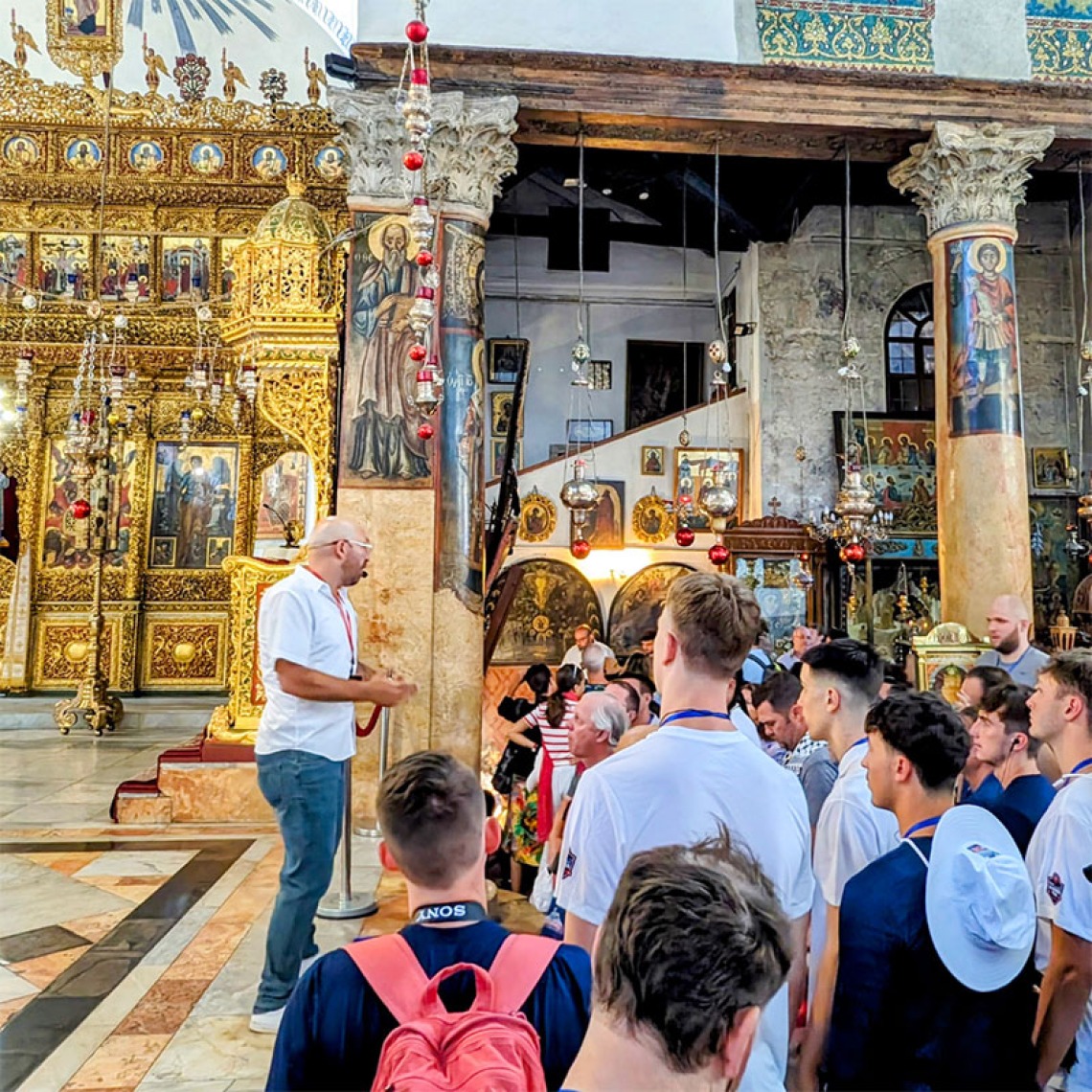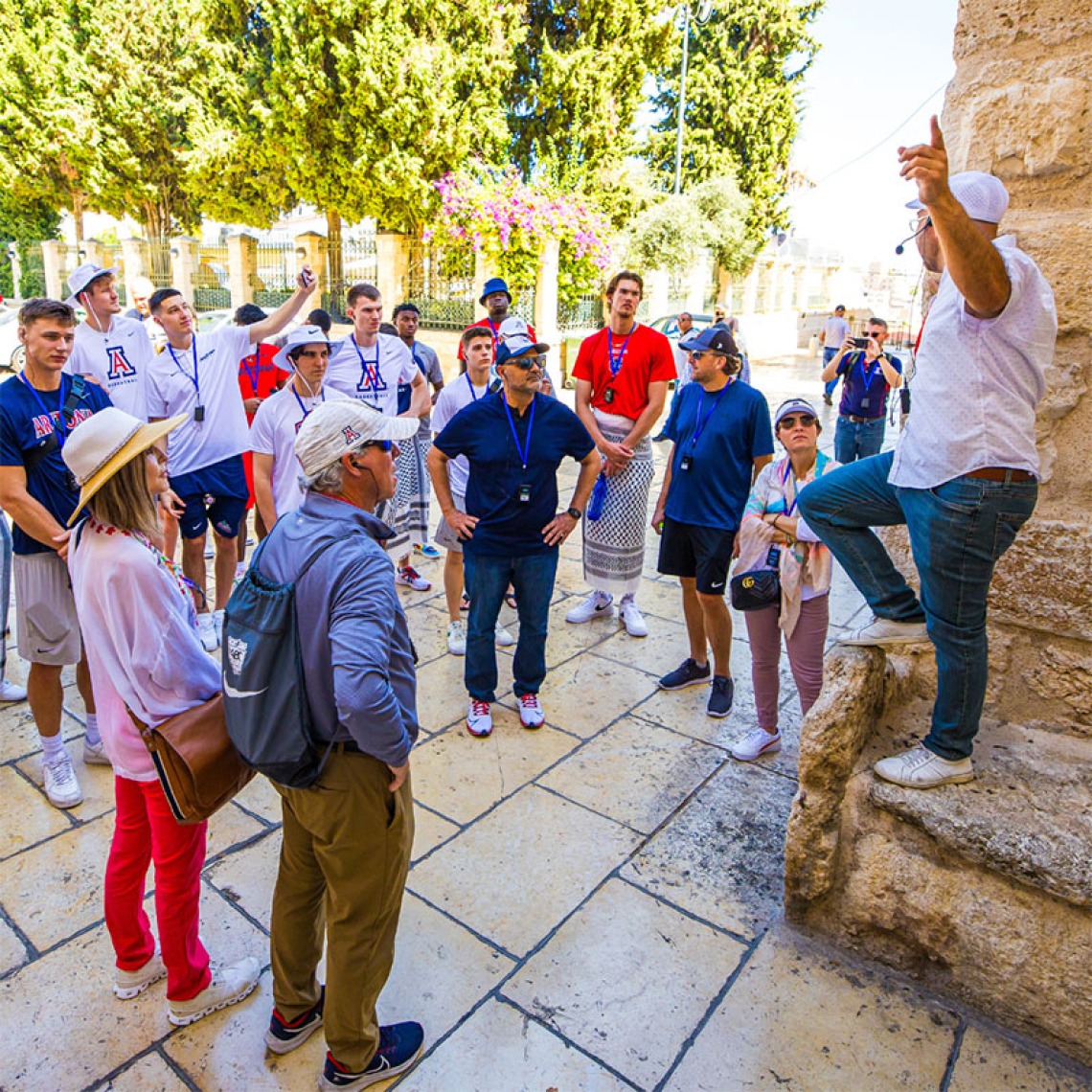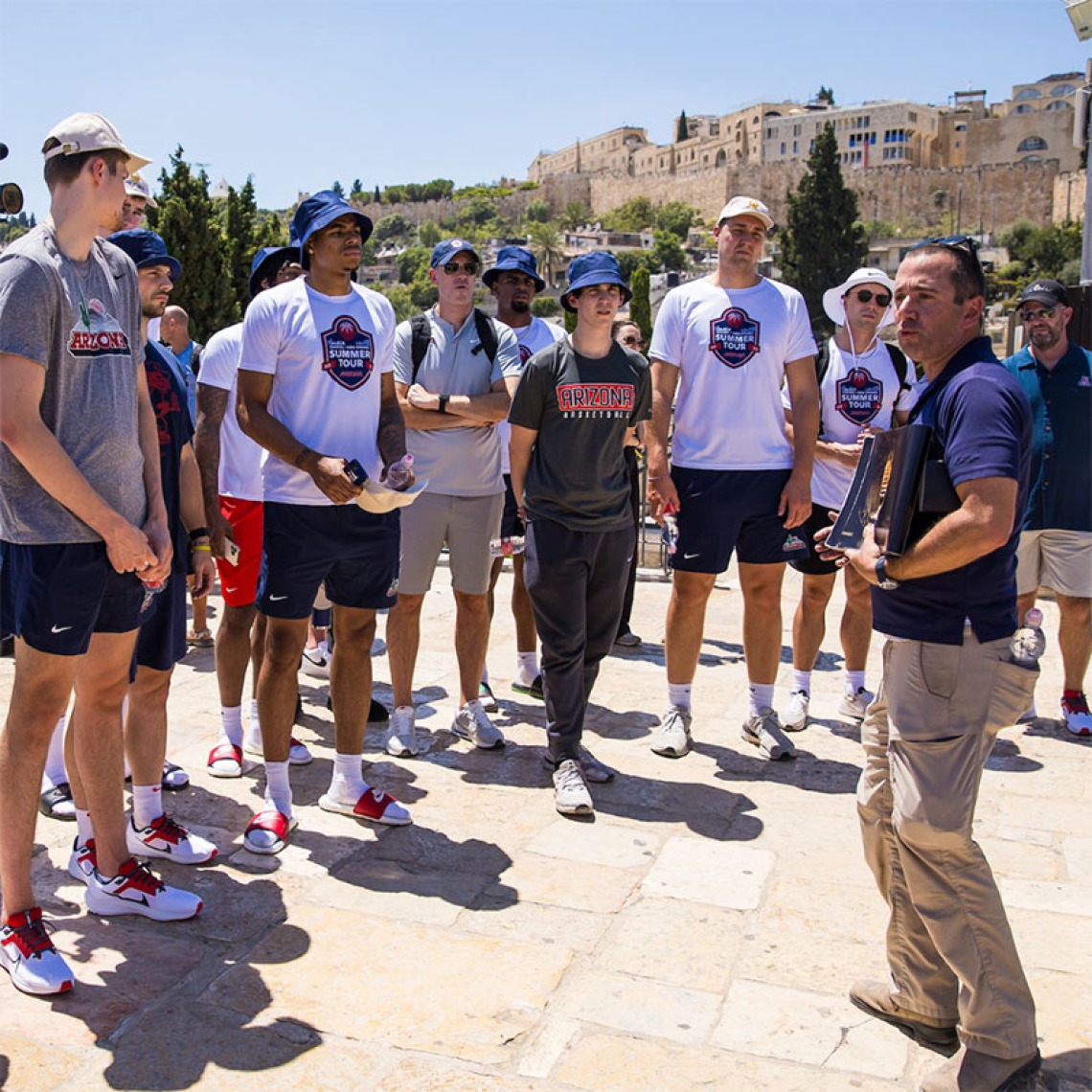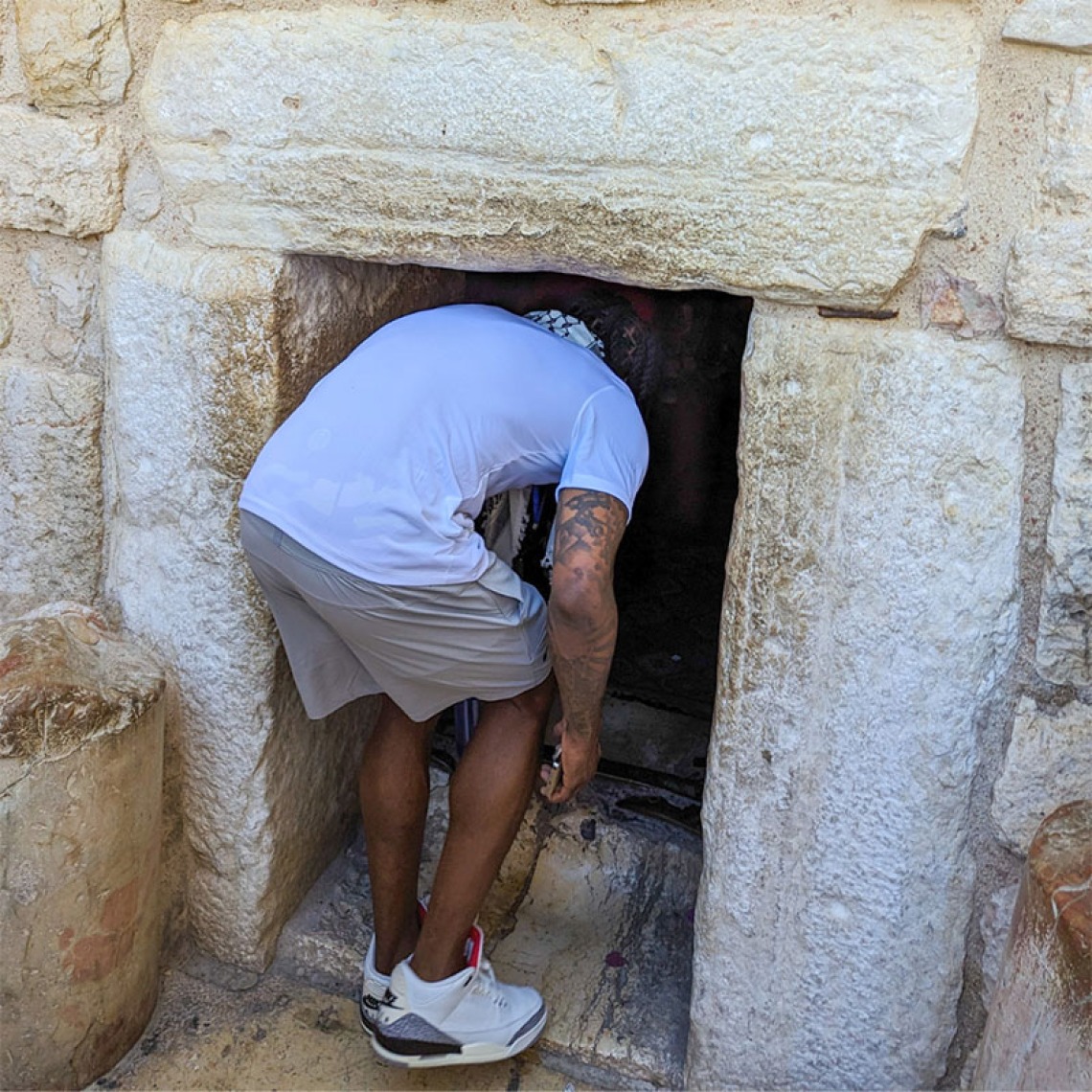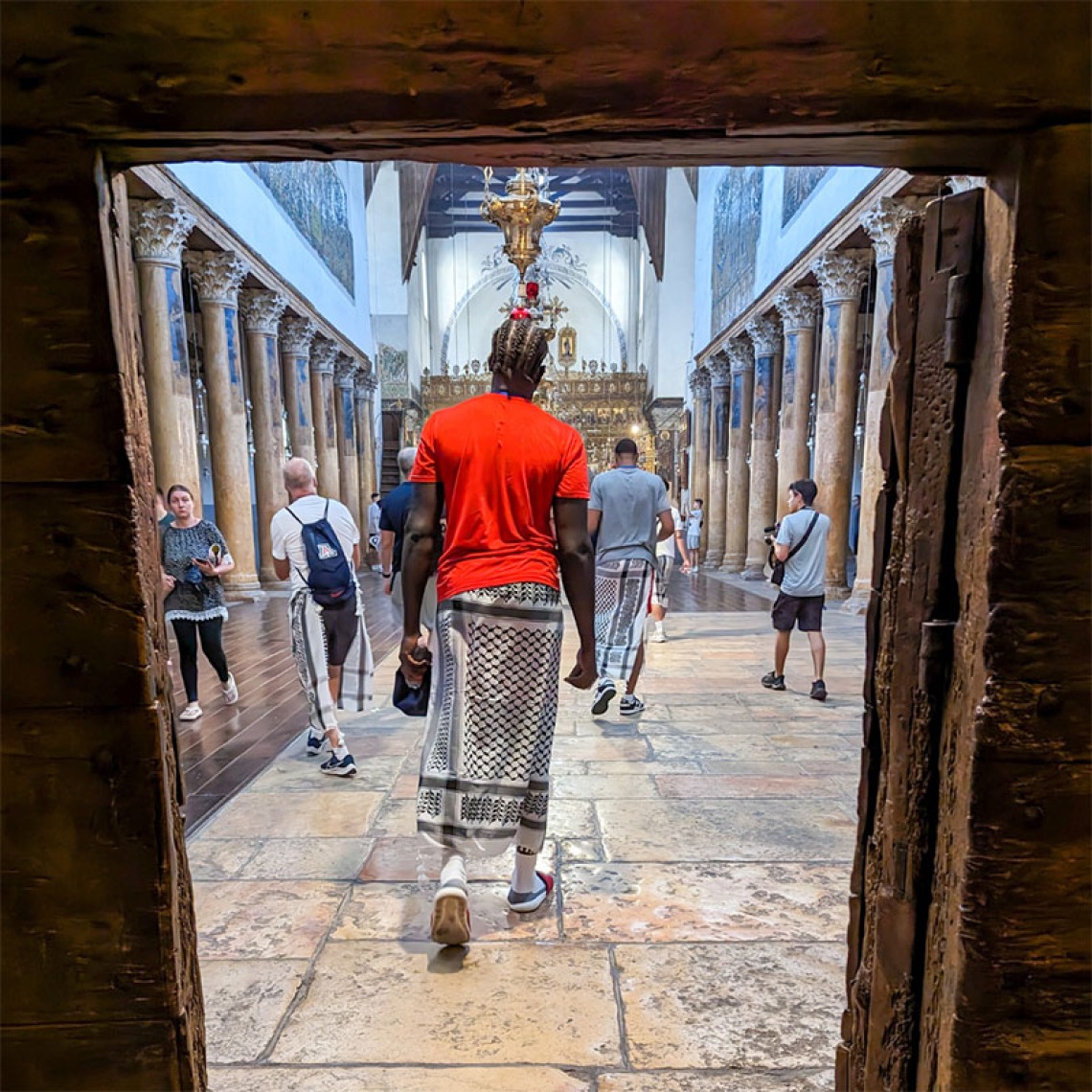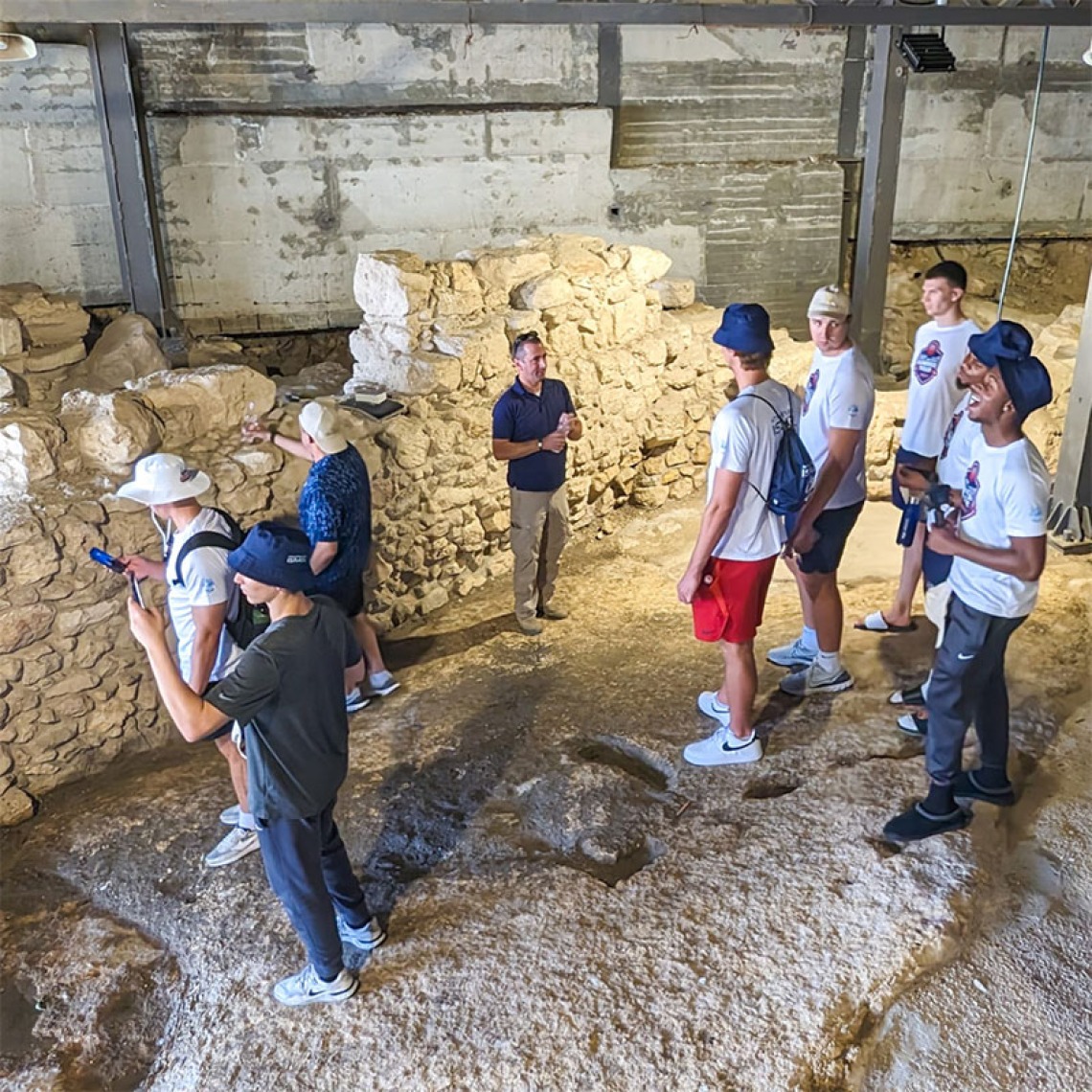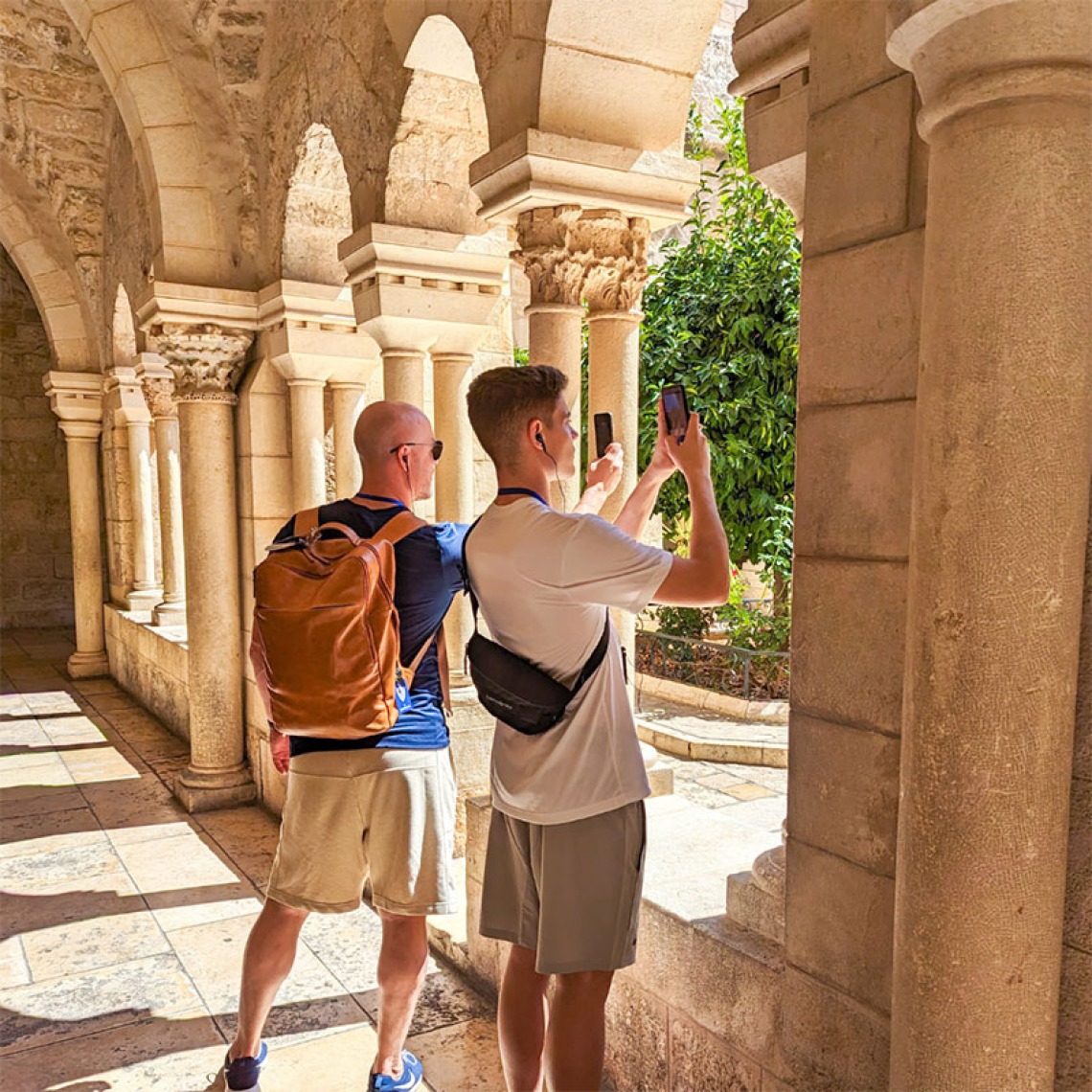Arizona Men's Basketball Players Study Abroad During Summer Tour
UArizona student-athletes face international competition and explore intercultural competence
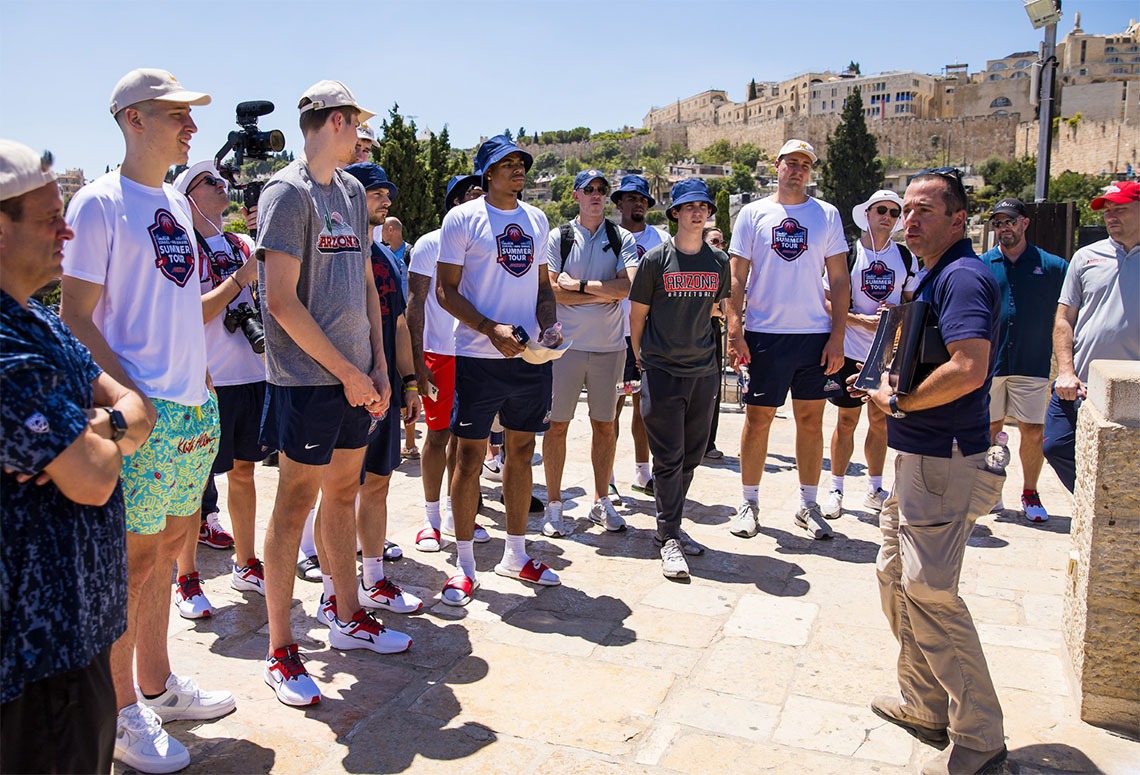
This month, the University of Arizona men’s basketball team embarks on a global journey that transcends the boundaries of the court. While they will be facing experienced international competition in the gym, their time away from the court will be spent exploring multiculturality and intercultural competence in two of the most historically and culturally rich areas in the world - Israel and the United Arab Emirates. The Wildcats will be earning credit towards their degrees as they visit historical and archaeological locations in Jerusalem, Tele Aviv, and Abu Dhabi. With eight student-athletes from foreign countries, this already worldly team will be the first team since COVID-19 to have an opportunity to study abroad. Accompanying them on the trip will be University of Arizona President Robert C. Robbins.
While most universities take advantage of the NCAA rules allowing teams to make an international trip once every four years, UArizona is one of the few schools that actively adds an educational element to the trip. “It is a general practice for us at the University of Arizona to ensure that there is some type of academic enhancement to these trips,” said Brent Blaylock, Senior Associate A.D. for Administration and Institutional Control. Since 2018, Vice President and Director of Athletics Dave Heeke has made it a mission to include a study abroad program on foreign tours whenever possible. This mission is echoed by Head Coach Tommy Lloyd. According to Blaylock, “They both prioritize the all-around student-athlete. It is very important to them that we have that academic component.”
Adding a for-credit class in conjunction with a foreign tour requires collaboration between multiple campus departments. University of Arizona Athletics, C.A.T.S. Academics, UA Study Abroad, and the College of Humanities work in partnership to provide this experience for student-athletes. Once a team’s trip is approved for travel, the C.A.T.S. team and Arizona Athletics work with Study Abroad to create the educational program, making sure to follow all compliance guidelines.
Athletics
Arizona Athletics ensures that student-athletes can travel by meeting all the NCAA requirements for a foreign tour. “When you're looking at it from the NCAA perspective, there are rules on how long the trip can be and when the trip can be taken. We had to make sure it was done over the course of the summer and before fall started. We also have the eligibility components on making sure that all our student-athletes are certified from both academic and amateurism perspectives,” said Blaylock. “Getting them certified and eligible was a tough exercise, but we got everybody there. We had the athletic practice and competition part, and then the academic and amateurism certifications as well.”
Senior Associate Director of Athletics for Student-Athlete Development John Mosbach, who helped develop the inaugural Arizona Athletics study abroad program for the women’s tennis team’s trip to Japan and has since been actively involved with creating both individual and team study abroad opportunities for student-athletes, believes that the educational experience of studying abroad is a key component to a student-athlete’s total success. “Many of our student-athletes may not have the opportunity to travel abroad,’ he said. “For them to have the ability to do this through the mechanism of the foreign tour and trip is a great experience.”
Academics
Creating the study abroad program with athletics was a partnership years in the making, said Harmony DeFazio, executive director of UA Study Abroad. “We talked for many years before we figured out the right formula. Now we have a successful collaboration within the university resulting in a meaningful learning experience for the students.”
According to DeFazio, the course Public and Applied Humanities 371: Intercultural Competence: Culture and Identity, wraps in some contextualization for where they are and what they are doing with their sport. The College of Humanities and UA Study Abroad have been able to modify this course to match the cultural experiences the student-athletes will encounter during international travel.
“Exploring the idea of intercultural competence helps the students refine their abilities to be comfortable, cognizant, and communicative across cultures and identities,” said Judd Ruggill, head of the Department of Public and Applied Humanities. “Being interculturally competent is a tremendous asset in any field, from the sciences, arts, and education, to law, medicine, and the humanities.”
The instructor for the men’s basketball PAH 371 course is Department of Religious Studies and Classics Associate Professor Rob Stephan. A seasoned traveler and veteran study abroad instructor, Stephan worked alongside the tour company, organizing the group’s travel itinerary to organize visits to some of the region’s historical, archeological, and cultural landmarks.
“What we're going to do is explore this concept of multiculturality and intercultural competence, not just with what's going on in the region today, but also throughout history,” said Stephan. “Many of the same kinds of issues that are going on right now are things that have their origin thousands of years in the past.”
The one-unit course is comprised of multiple components: online lectures that the student-athletes can complete prior to travel, on-site lectures at some of the area’s prominent historical and archaeological locations, primary source reading assignments, and a final project centered around a monument that has evolved and been engaged with and by different groups throughout time. Student-athletes research their chosen monument prior to the visit, then take photos and record videos reflecting on its historical significance. The final element is compiling the materials into a website that explores the monument’s historical path through time. According to Stephan, “In doing that, they don’t just learn about intercultural competence, but experience those different perspectives themselves.”
Read more about the basketball team's study abroad course, Public and Applied Humanities 371: Intercultural Competence: Culture, Identity, Adaptation, on the College of Humanities news site: Study Abroad Class Gives Basketball Trip an Academic Focus.
Photos courtesy of Department of Religious Studies and Classics Associate Professor Rob Stephan and Mike Christy, Arizona Athletics Director of Sports Photography.


